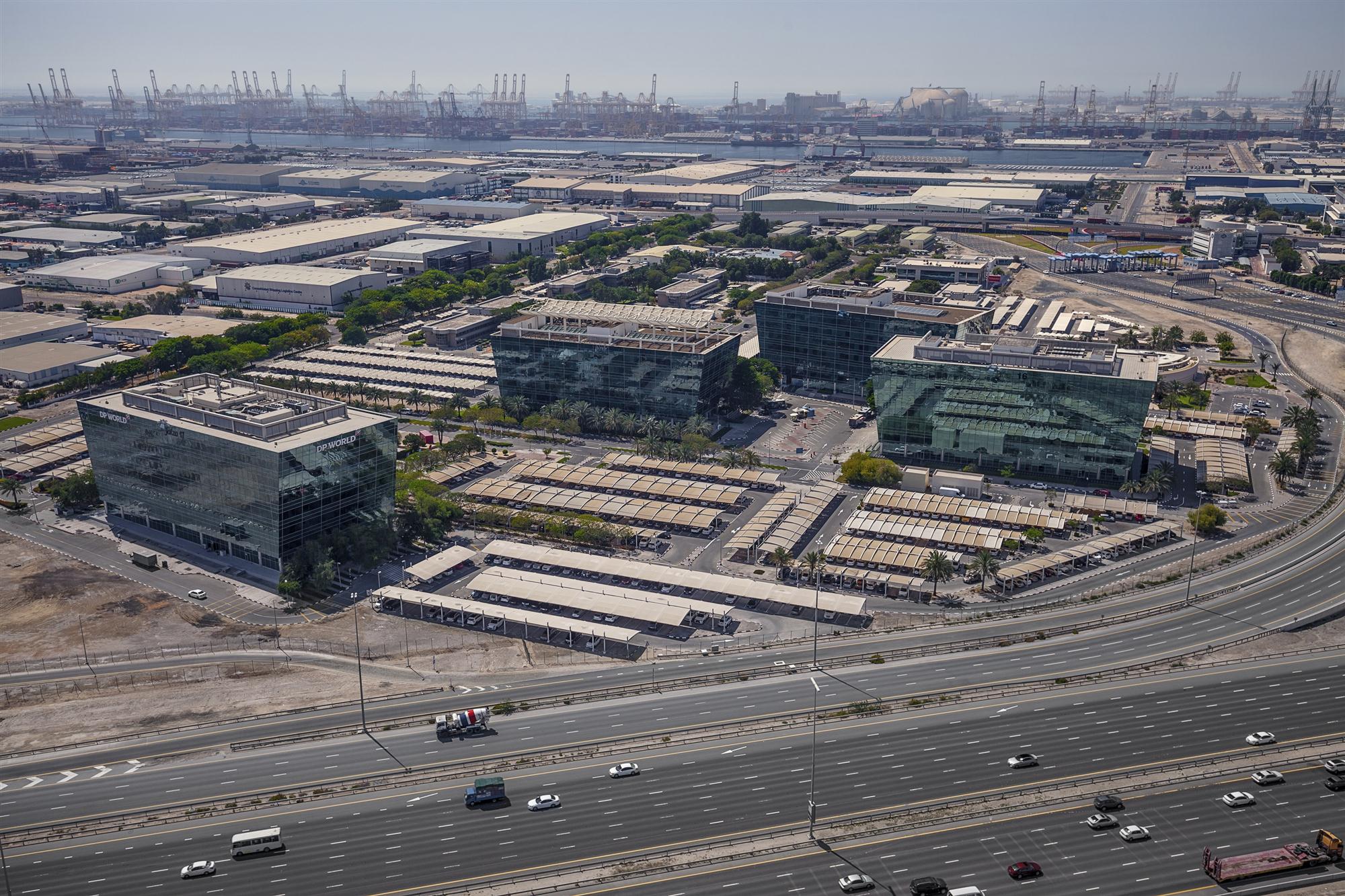Given Dubai’s small size and an equally small population, the emirate’s Jebel Ali Free Zone (JAFZA) has positioned itself as a conduit that not only facilitates transhipment but also as a manufacturing and processing site that infuses value-added attributes to the base and finished products destined for the regional and global markets.
Indeed, internationalizing its operations is the mantra with which JAFZA has asserted its position in a fiercely competitive global environment.
As an important conduit with a modern infrastructure, JAFZA has attracted foreign clientele not only in areas of trading but also manufacturing or processing operations.
South Korea’s Small & Medium Business Corp (SBC), the latest to avail of JAFZA’s facilities, recently signed a memorandum of understanding (MoU) with JAFZA on cooperation aimed to bolster the SBC’s trading businesses. Both JAFZA and SBC, besides fostering two-way trade, will exchange information on investment opportunities in each other’s country in an effort to attract more South Korean SMEs to set up a base in the UAE.
Sultan Ahmed Bin Sulayem, group chairman and CEO of DP World, which owns JAFZA, described the signing of the MoU as “the next step in the evolution of trade ties between the UAE and the Republic of Korea, as well as JAFZA’s own plans to encourage trading businesses to establish their operations here.” Trade between the two countries reached US$5.44 billion in 2016. JAFZA accounted for 47.48% or US$2.58 billion.
JAFZA serves as a platform for larger South Korean companies setting up operations in the Middle East and North Africa (MENA) region, especially in automotive, electronics and chemicals sectors. Some 58 large South Korean companies have regional offices in the free zone, including Fortune 500 firms Samsung, Hyundai, and LG.

Argentinian businesses have also eyed the Gulf markets. The Emirates Argentina Business Platform (EABP) recently signed an agreement to open an office in JAFZA when Miguel Braun, Argentine secretary of trade, visited the UAE with a high-level delegation.
DP World, which operates marine terminals in Argentina and maintains a strong presence across South America, including investments in Argentina, wants to build what it calls “enduring partnerships” with Argentina and other Latin American countries.
Argentinian companies trading in agricultural, meat and other food products can benefit from halal certification issued by the Emirates Authority for Standardization and Metrology following growing global demand for halal fish.
DP World has also recently held talks with senior executives of India’s Tata Group to identify areas of cooperation between the two, particularly on logistics and supply chain operations, innovative customer care and creating high-quality, sustainable services. DP World has extensive business interests in India, including six container terminals, inland container depots, warehouses and container rail freight services, among others.
DP World has acquired a 90% stake in Continental Warehousing Corp, an Indian logistics firm, and has announced the creation of an investment platform Hindustan Infralog to invest up to US$3 billion in ports, terminals, transportation and logistics businesses in India.
Tata executives have toured the JAFZA facilities, including Terminal 3 (T3), the world’s largest semi-automated container handling facility, with an annual capacity of 4 million TEUs. Indian container imports at Jebel Ali Port have, meanwhile, steadily increased in the past four years from 205,000 TEUs in 2013 to 254,000 TEUs in 2017, while exports reached 132,000 TEUs. JAFZA is home to 788 Indian companies engaged in a wide range of sectors.
JAFZA accounts for almost 32% of the total foreign direct investment flow into the UAE, and claims to have generated trade worth US$80.2 billion in 2016. DP World handled a global volume of 70.1 million TEUs in 2017, up 10.1% over the previous year. It expects to increase gross capacity to more than 100 million TEUs by 2020, going by market demand.
JAFZA offers incentives such as exemption from import and re-export duties and e-services to lure foreign companies to set up business in the free zone.
The free zone has also attracted a large presence of food and beverage (F&B) companies whose numbers have grown from 507 to 570 in 2017, a 12% increase over the previous year. F&B companies from 75 countries are represented at JAFZA, including AGC, Unilever, Mars, Food Specialties Limited and Hunter Foods.
These companies have positioned themselves to tap the business potential in the MENA region which, according to a recent Business Monitor International (BMI) research report, expects food sales to increase annually by an average 6.3% between 2015 and 2020.
JAFZA is also home to 306 healthcare and pharmaceutical companies from 54 countries, including brand names Roche, Johnson & Johnson, Glaxo Smith & Kline, L’Oréal, Sanofi, Life Pharma and others. BMI forecasts that in the UAE, the pharmaceutical and healthcare sector will grow from US$16.96 billion in 2017 to US$17.88 billion this year, before hitting US$21.27 billion in 2021. For the entire MENA region, it forecasts growth from US$174.43 billion in 2017 to US$182.43 billion in 2018 and US$213.1 billion by 2021.
Bin Sulayem has been underscoring the importance of healthcare and pharmaceuticals which are considered “key strategic targets” in the Dubai Industrial Strategy 2030 vision.
But JAFZA must keep upgrading its infrastructure to facilitate transport and distribution. The recent inauguration of the “JAFZA Bridge” linking JAFZA North and JAFZA South facilitates the flow of traffic between Jebel Ali Port and Dubai’s Al Maktoum International Airport; this also supports the Dubai Logistics Corridor (DLC) which links the port, free zone and airport under a unified customs bond.
According to the World Bank’s Logistics Performance Index, the UAE ranked 13th globally in 2016, compared to 27th in 2014. The index measures key elements such as customs, infrastructure, freight and transport and shipment time.
By Manik Mehta
International Correspondent | Dubai



